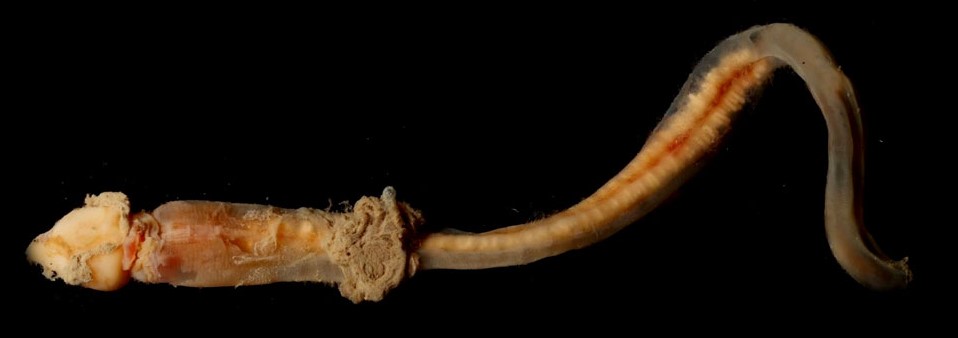Climate change heroes of the deep sea
The deep seabed of our Marae Moana contains large deposits of polymetallic nodules that are of great commercial interest. This is because they contain valuable metals such as manganese, nickel, copper and cobalt. Our government is moving full steam ahead in an effort to get commercial mining of these metals starting sooner rather than later.
This same deep seabed is also home to a diverse range of deep sea life. While exploration of the deep sea has been ongoing for almost 2 years now in Cook lslands’ waters, we are yet to see any information on the biodiversity that has been found during this exploration.
Although we have no verification of its presence, one of the animals that may live on our deep seabed is the acorn worm. An interesting fact is that the acorn worm is the closest living invertebrate relative of humans, sharing 70% of our DNA. This compares to chimpanzees, who are our closest vertebrate (i.e has a backbone) relative, containing 98% of our DNA. These creatures, that can grow up to 2.5m or 8 feet in length have been found in the deep sea in other parts of the Pacific Ocean. Scientists have recently been studying these creatures, and have learned some surprising things about their ecological contributions to carbon recycling, important for combatting climate change.
In the oceans upper zone, where light is still present, tiny floating plankton transforms carbon dioxide into organic material. They are then eaten by larger animals, and as these animals eat, they eliminate waste products, eventually die, and then create a flurry of organic material known as marine snow. The sinking snow moves nutrients and carbon all the way down to the deep seafloor, where it provides food for bottom dwelling animals, including acorn worms. This cycle is known as the biological pump. So even though we have completely different environments, we are connected to acorn worms through the carbon cycle.
This role becomes even more critical in the context of deep seabed mining. The potential environmental impacts of such ventures are significant, with concerns about habitat destruction, pollution, and disruption of delicate food webs. Acorn worms are just one possible player among many that have a crucial role in the sediment processing and nutrient cycling. All these creatures are particularly vulnerable to the impacts of deep seabed mining. Their disturbance or decline could have cascading effects on the entire ocean ecosystem.
Therefore, understanding the role of acorn worms and other organisms in the deep sea is not just a scientific endeavor, but a critical step in the decision making process for whether seabed mining should be allowed to proceed, or not; it is a crucial part of responsible resource management. Studies investigating distribution, abundance, and function of these organisms will be needed to inform environmental impact assessments and, if mining were to proceed, guide potential mitigation strategies.
The story of the acorn worm is a reminder that heroes come in all shapes and sizes, even in the darkest corners of our planet. These unsung heroes of the abyss play a vital role in keeping the deep sea alive, and understanding their importance is crucial as we seek to explore viable options for a transition to a greener future. A transition guided by adequate research into the role these deep sea creatures play in keeping our planet healthy.
In an interview with the Toronto Star after a marine pollution incident on their mining vessel last year, the CEO of seabed mining company, The Metals Company, Gerard Barron, was quoted as saying:
“ In this area, most life is under the sea floor, and those are very small organisms … Let’s look at it from a bigger perspective. Let’s not just think about the worms”.
Well Mr Barron, we partially agree, we do need to look at the bigger perspective. Let’s not just think about the money! Let’s think about the crucial role these worms and other creatures have in keeping our ocean healthy.
If you would like to learn more about acorn worms and other aspects of deep seabed ecology, and their role in fighting climate change, you may be interested in these resources:
- Acorn Worms: https://www.youtube.com/watch?v=kfxFx9GGjpo
- Diversification of acorn worms (Hemichordata, Enteropneusta) revealed in the deep sea: https://royalsocietypublishing.org/doi/10.1098/rspb.2011.1916
- The potential negative effects of deep-sea mining on food webs: A conceptual model and preliminary results for the Clarion-Clipperton Zone: https://www.fauna-flora.org/seabed-mining-report-2023

